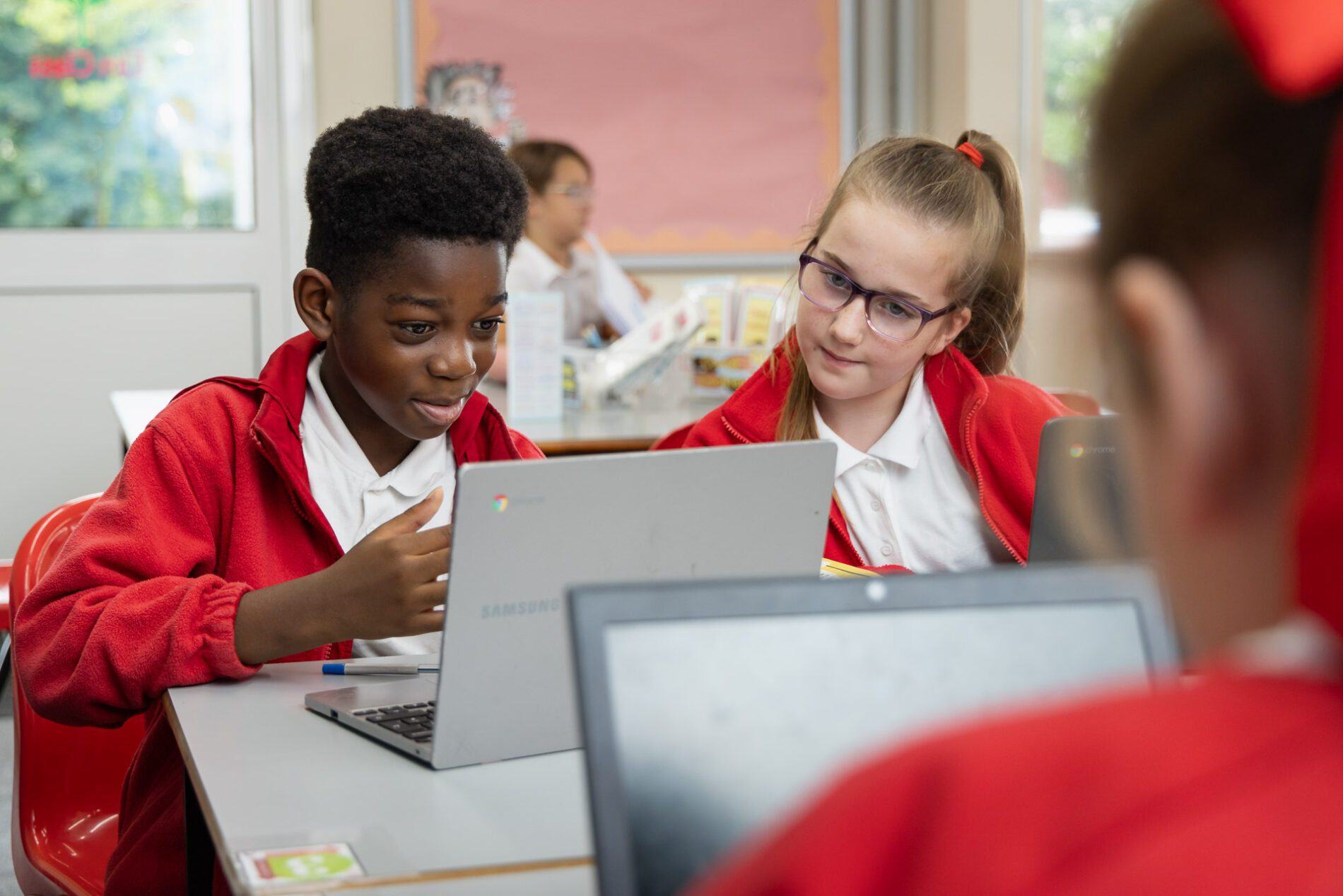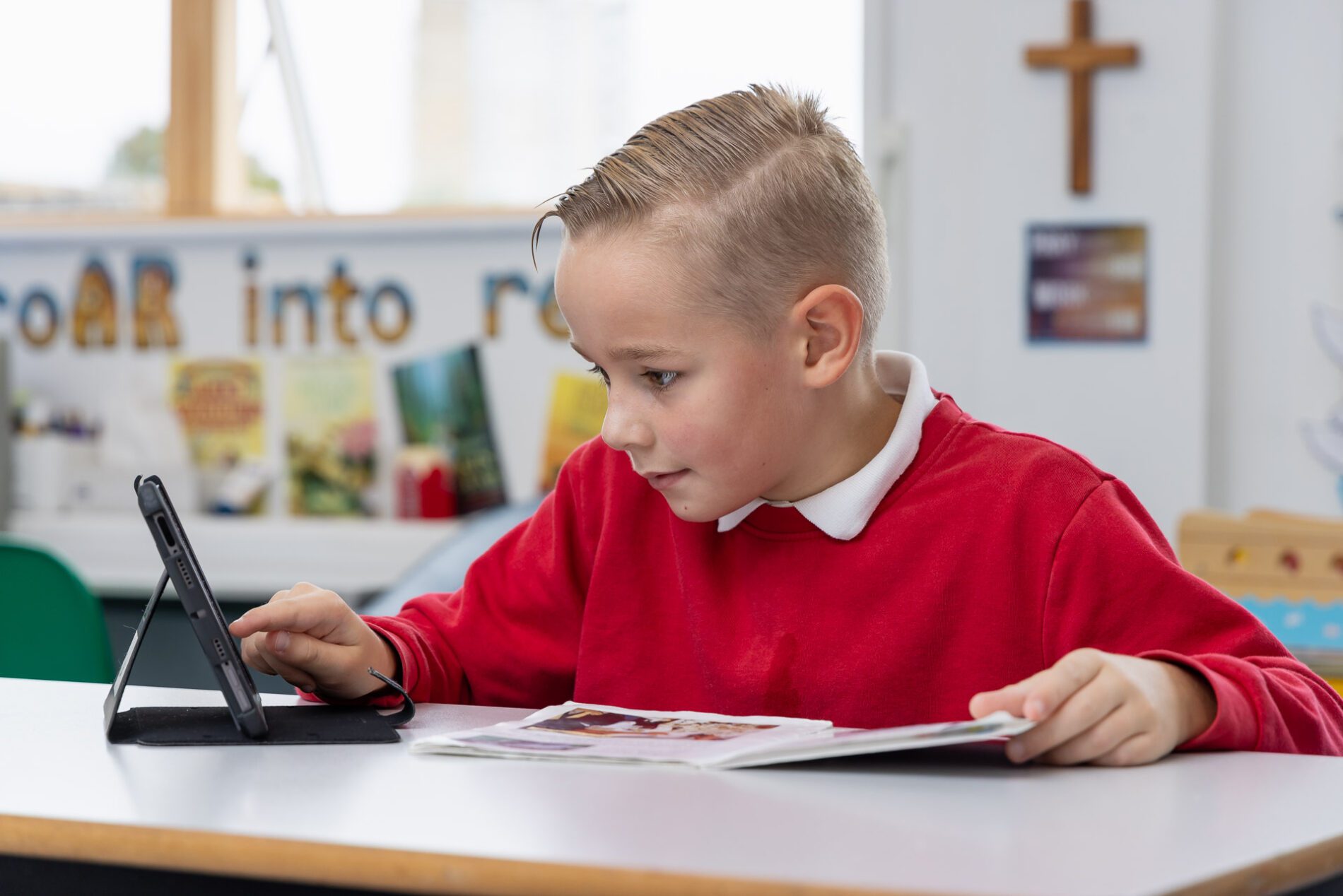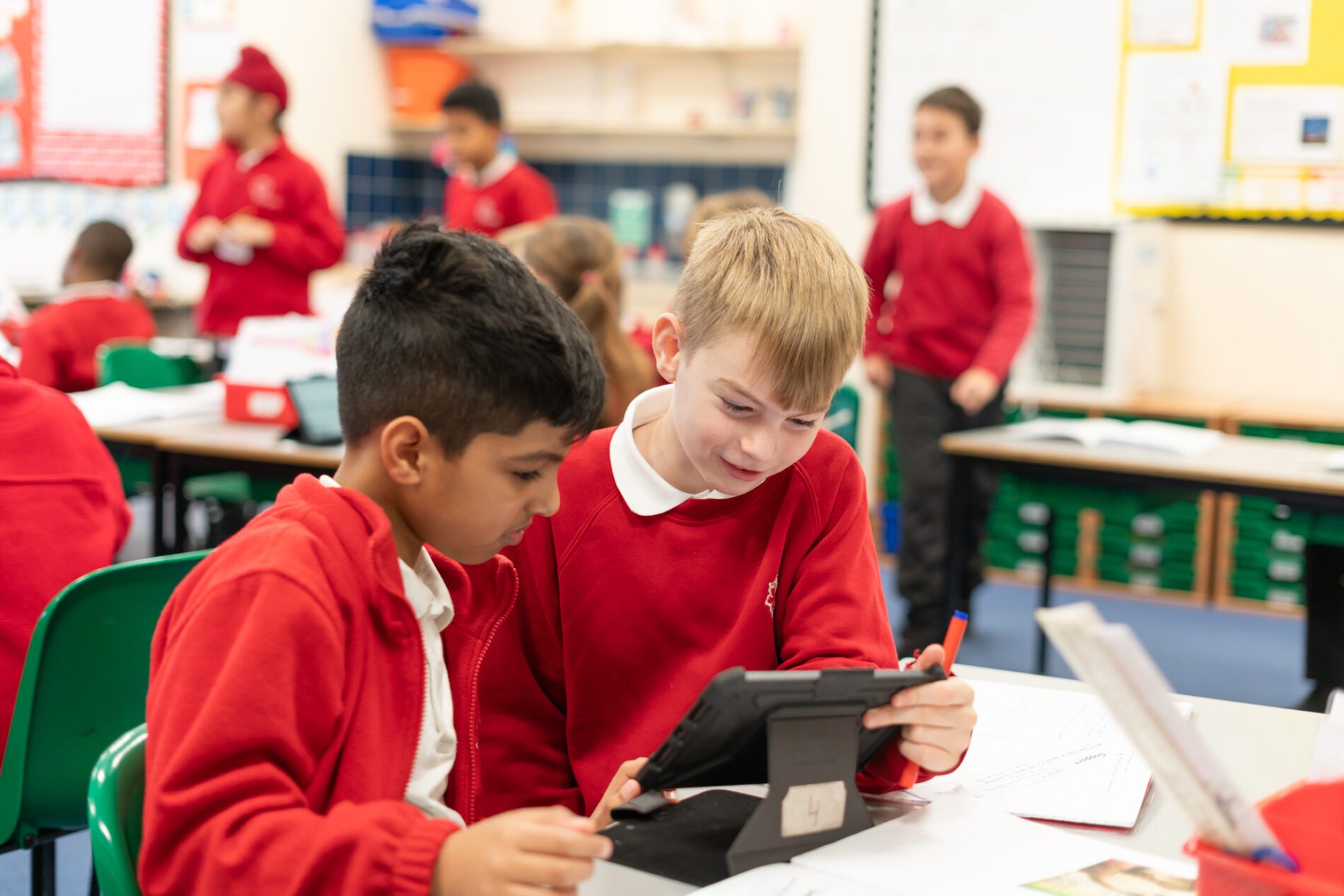Computing Subject Leader: Mr C Govey
For any more information on St Botolph’s Computing Curriculum, please contact the office.
“During our computing lessons, we want to inspire computational thinkers who are prepared for the jobs of the future by using a range of technology that challenge creativity and resilience.”
Intent
Computing is a practical subject, in which creativeness and imagination are encouraged. The ideas of computing are applied to understanding real-world systems and creating purposeful products. This combination of principles, practice and invention makes computing an extremely useful and creative subject, immersed with excitement.
Our aim is to provide a high-quality computing education which equips children to use computational thinking and creativity to understand and change the world. The curriculum will teach children key knowledge about how computers and computer systems work, and how they are designed and programmed. Pupils will have the opportunity to gain an understanding of computational systems of all kinds, whether or not they include computers. They also experience opportunities to develop their computational thinking, solving difficult problems by applying their knowledge and skills. This allows pupils to solve problems, design solutions and develop an understanding of how computers can support us in our day-to-day life. Our intention is that computing also supports children’s creativity and cross curricular learning to engage children and enrich their experiences in school.
At St Botolph’s, we aim to prepare our learners for their future by giving them the opportunities to gain knowledge and develop skills that will equip them for an ever-changing digital world.


Implementation
Our computing curriculum focuses on a progression of knowledge and skills in digital literacy, computer science, information technology and online safety to ensure that children become competent in safely using, as well as understanding, technology. These strands are revisited repeatedly through a range of themes during children’s time in school allowing for a broad, deep understanding of computing and how it links to their lives. Consolidation, challenge and variety enables children to apply the fundamental principles and concepts of computer science. They will develop analytical problem-solving skills and learn to evaluate and apply information technology, becoming responsible, confident, and creative users of information technology. Our pupils will be inspired to develop a love of the digital world, seeing its place in their future. We have a computing suite and class sets of iPads or Chromebooks to ensure that all year groups have the opportunity to use a range of devices and programs for many purposes across the wider curriculum, as well as in discrete computing lessons. Children are introduced to different programs and software, including Kodu, Scratch, PowerPoint, Word and Paint. They are expected to learn how to use, store and retrieve a range of different data and learn to use computers to improve efficiency and team collaboration.
Impact
Our approach to the curriculum results in a fun, engaging, and high-quality computing education. Teachers have high expectations and quality evidence is presented in a variety of forms. Children use digital and technological vocabulary accurately, alongside showing a progression in their technical skills. They are confident when using a range of hardware and software and produce high-quality purposeful products. The subject-specific knowledge developed in our computing lessons equips pupils with experiences which will benefit them in the future. They see the digital world as part of their world, extending beyond school, and understand that they have choices to make. Pupils leave us as confident and respectful digital citizens going on to lead happy and healthy digital lives. We believe that in an age of rapid growth of technologies and increased accessibility of information and data, it is essential that schools provide children with the digital literacy skills to thrive in an ever-changing 21st century. Computing at St Botolph’s gives children the building blocks that enable them to pursue a wide range of interests and vocations in the next stage of their lives.


Computing in Each Stage
In Early Years, children start their digital journeys, using a range of resources including interactive whiteboards, touchscreens, iPads and computers, which creates a solid base for their burgeoning understanding of technology.
In Key Stage One, children will develop their understanding of digital programming by giving simple instructions to computer systems, such as Beebots. Additionally, they will increase their knowledge of digital products, including those which are online enabled, and be able to discuss where we use technology in our everyday lives; they will also be taught how to stay safe when using these products online and how to safeguard themselves and others against online issues. Children will gain an understanding of algorithms and how to program these into devices to fulfil a specific task by sequencing instructions; this, in turn, will allow them to create their own programs. Finally, they will learn to communicate safely in the online world, showing empathy, respect and consideration for others.
In Key Stage Two, children will be taught the skills of logical reasoning to explain how algorithms work and use the skills of selection, sequencing and repetition in computer programming. Children will consistently develop their understanding of how to stay safe and remain safe online, increasing their profile of programs and systems that they can demonstrate this knowledge on; children will develop their online behaviours to understand how their actions impact others online, as well as understanding the consequences of what they post online. Children will also gain a greater understanding of how to search for – and retrieve – information online, honing their skills to allow them to streamline their searches effectively. Finally, children will develop their knowledge of computer systems as having three main components: input, process and output.
By the end of Lower Key Stage Two, children will be able to confidently debug programs they use, understanding how to troubleshoot issues as they develop and manipulate the systems they use to rectify any issues that may arise. Children will also be able to create their own digital programs, using coding skills to be able to create algorithms and sequences of data. In Upper Key Stage Two, this knowledge extends to using logical and appropriate structures that accomplish a set of given criteria, constantly refining their programming code to ensure problems are removed efficiently.
Computing Progression
The Computing curriculum overview shows what each year group is learning throughout the school year, whilst the milestones show how our children can achieve each connecting stone during their time at St Botolph’s CofE Primary School.
SEND Information
Learning is adapted where necessary to support children with SEND or those who have English as an additional language. Learning also tailored for those children who are more able learners.

